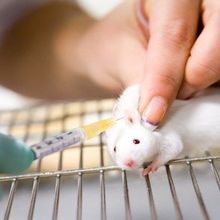Internal Clock Disruptions Increase Colon Cancer Risk in Mice
Disturbing circadian rhythms in organoids and mice increases intestinal tumor growth, findings that may explain a recent rise in colon cancer among young adults, the researchers behind the work say.


















